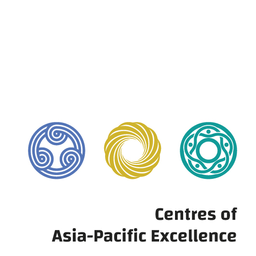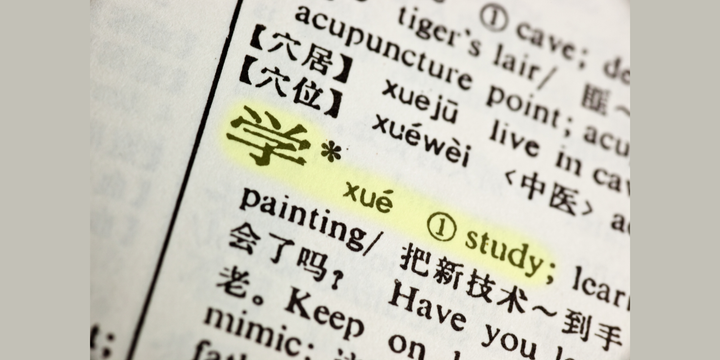Managing a crisis offshore – expect something different
When planning for international crisis management, plan to set aside your usual assumptions, says Dr Dan Laufer.

The scenarios are easy to imagine: consumers attack your product online, an error disrupts your quality measures. At home in New Zealand, you may feel well-drilled and ready to stop a blip from becoming a crisis. But if the events unfold offshore, plan to set aside your usual assumptions, says Dr Dan Laufer.
The context
- Crisis management is an important part of the resilience of any business, but internationalisation comes with extra dimensions to managing and responding to risks.
- Understanding how stakeholders might react in different markets, and who in the business would best lead the public response in those places, are two key parts of any crisis management plan.
- Two research papers highlight common crisis triggers and response strategies found in China, and what to consider when deciding whether the Chief Executive Officer should front an offshore crisis response.
In the social media age, most businesses will inevitably need to stave off a potential crisis in full view of consumers, if not manage and recover from a serious crisis. Internationalising companies face the same prospect, so crisis management and communication need to be part of the plan.
Any plan should consider how the cultural environment will influence a crisis and how consumers and other parties might react. Having researched crisis management in cross-cultural settings for two decades, Dr Dan Laufer, Associate Professor of Marketing at Victoria University of Wellington, has a deep understanding of global crisis response. His 2002 PhD from the University of Texas at Austin examined how stereotypes about a product’s country of origin influence how consumers blame businesses for harm caused by their products. Since then, his research has focused on crisis communication and educating businesses about managing crises, especially in global settings.
Having studied a multitude of crises, he is clear that, when it comes to responding, context matters.
"Organisations must be very cautious of assuming that a crisis management approach that works at home will works in other markets. You need to be sensitive to differences in cultural norms between your society that you know well and the society in the offshore market."
Even in your home market, facing a crisis is difficult. It requires leaving your comfort zone, and following best practice rather than inclination. In Western-orientated societies, best practice generally includes being transparent, disclosing as much information as possible, and offering a public apology.
“Few business people like to do this, but even if it demonstrates an organisation’s failings, it is usually considered the best response,” says Dr Laufer.
But what if the crisis happens in a place where expectations are different? Dr Laufer recently reviewed the differences in one of New Zealand’s biggest and most culturally different export markets—China.
Despite the clearly different context, Dr Laufer had observed that scholars tend to use well-established Western approaches to assess crisis and response in Eastern markets. He partnered with Dr Yijing Wang of Erasmus University Rotterdam, to review research and case studies and so identify distinct factors that influence crisis triggers and response strategies in China.
They published their findings in the paper, How does crisis management in China differ from the West?: A review of the literature and directions for future research (abstract only/paywalled). Covering research over a twenty-year period and 23 studies, the featured companies read like a who’s who of global organisations: KFC, McDonald’s, Apple, the Red Cross, and IKEA, as well as local companies such as Sanlu—whose 2008 baby formula safety crisis dragged New Zealand shareholder Fonterra into the picture.
The cultural influence on crisis
While the review found clear factors that influence how crises erupt and resolve in China, it also highlighted the complexity of managing a crisis in China—there are few clear steps around or out of dangerous reputational territory. Cultural, political and media environments all interact to heighten the risk that a small or unfounded issue will escalate into something more.
“In one corner you have the public; they have low trust in companies and regulatory agencies, are quick to vent their thoughts on social media, and often have little information other than what they get from social media influencers. In another corner you have the government-regulated media, which may amplify or downplay the event according to how it serves the government’s interests,” explains Dr Laufer.
Even if authorities subsequently clear a company from wrongdoing, this might not clear the air with consumers, according to the study. Johnson & Johnson (J&J) experienced this in 2009 when an NGO alleged that its baby care products contained hazardous substances. The allegation swiftly surfaced in Chinese media, and social media outrage erupted. Government inspectors subsequently found no threat to public safety, but J&J still lost significant market share.
“China’s unique cultural and political complexities are the reason why crisis researchers generally see the key Western crisis management theories as insufficient to guide crisis management there,” adds Dr Laufer. But understanding the ways in which local companies usually respond can help.
Companies in China manage risk through several strategies grounded in important cultural phenomena, according to Dr Laufer’s review. Businesses operating in China will likely be familiar with these concepts. Guanxi, for example, is the relationship of trust, obligation and hierarchy that guides many situations and actions rather than, say, the pre-set rules that would guide actions in other markets. Companies with strong guanxi with government agencies, for example, often ride out a crisis from behind the response of those agencies. Guanxi with authorities is both critical in managing a major crisis and something that takes time to develop.
Similarly, the well-known concept of ‘loss of face’ influences crisis response in multiple ways. “Loss of face is grievous in China. This probably explains why apologies were rare in the cases covered by the research. Conversely, few businesses denied the allegations or attacked their accusers, as this would cause both parties to lose face,” explains Dr Laufer.
This is not to say that pro-active communication is a no-go, says Dr Laufer. In fact, friendly and even entertaining online banter has proved important in de-escalating issues in China, at least when the stakes are relatively low.
“China’s social media users were perhaps quicker than some Western markets to adopt self-mocking tones and friendly emoticons, or to ‘act cute’,” says Dr Laufer.
He points to several light-hearted cases in the research. Alibaba, for example, explained away a highly exaggerated underwear sales result by referring to owner Jack Ma’s self-confessed deficiency in mathematics. In another case, a drinks company earned sympathy rather than scorn after it lost a high-profile trademark dispute, by using crying-baby emoticons and confessing that it is only great at making herbal tea and not winning lawsuits.

Networking as crisis preparation
China’s complexity and fast-moving landscape is a good example of the need for businesses to have a network of contacts they can approach for advice when weathering an offshore crisis, suggests Dr Laufer. Larger organisations will find this easier than smaller businesses, as they can turn to international branches and networks and the knowledge of offshore operations. But for New Zealand’s many small exporters, Dr Laufer recommends that their crisis management and response plan includes building overseas networks and engaging with locals.
"New Zealand-based experts may have valuable cultural insights but there is still a need for the most current information. Social media especially impacts how people get information that they trust, and itself is a fast-moving beast. An effective response to a crisis in China needs to consider the influence of social media on public opinions and how to use this knowledge when responding to a crisis.”
A crucial decision will be who should speak for a business as a situation develops, and on what platform. This is the subject of another of Dr Laufer’s research papers.
Should the Chief Executive be the spokesperson during an overseas crisis?

In August 2013, New Zealand dairy giant Fonterra reported a risk of botulism in some of its products, though the risk was proved unfounded in a matter of weeks. The incident caused recalls and scrutiny across China, the Middle East, Southeast Asia and elsewhere.
During the crisis, Fonterra sent its Chief Executive, Theo Spierings, to represent the business in China. Sending a foreign CEO overseas as a spokesperson during a crisis was an under-researched topic in International Business and Crisis Management, so Dr. Laufer decided to conduct research in the area. His most recent publication on the topic looks at both his research and other studies in order to identify key factors in determining whether a foreign company should use its CEO as a spokesperson during an overseas crisis: Should CEOs of multinationals be spokespersons during an overseas product harm crisis? (degruyter.com) (abstract only/paywalled).
“The choice of the messenger can be as important as the message and it not as simple a decision as you might think,” says Dr Laufer. In his paper he identifies three important factors to consider.
The characteristics of the crisis
Crises can differ on a number of dimensions, including culpability and severity. In the case of severity, the more severe a crisis is, the more appropriate it is for Chief Executive to be the spokesperson. For example, in 2008, when an Air New Zealand plane on a test flight crashed in the Mediterranean, the Chief Executive was very visible as the company's spokesperson. In contrast, in a relatively minor incident when an Air New Zealand flight turned back from China to Auckland, the Chief Executive kept a low profile. Dr Laufer concluded that both responses were correct in the circumstances.
The characteristics of the overseas stakeholders
Different cultural norms may determine the best spokesperson. New Zealand’s traditionally egalitarian preferences mean that seniority does not automatically garner respect from the wider public. In contrast, in China, greater seniority usually engenders greater respect. So, in the case of the Fonterra botulism contamination crisis, it was right for the Chief Executive to be the spokesperson. A more junior spokesperson from New Zealand, even one already based in China, may not have received the attention of local media and other commentators. In addition, consumers based in China react differently to the spokesperson based on status, and would react more favourably to the Chief Executive as a spokesperson.
The characteristics of the Chief Executive
The characteristics of the Chief Executive are also important to consider in determining whether to use them as a spokesperson during an overseas crisis. A Chief Executive fronting up to an offshore crisis already has what could be considered the liability of being foreign. Yet if they have the right reputational fit for the crisis, such as a reputation for getting the job done, or an empathic communication style, this may overcome any local prejudice and make them the best choice for spokesperson during a crisis.
Further research on successful crisis navigation
Dr Laufer's current research is looking into the concept of "spillover crisis" or "crisis contagion"—how organisations get caught up as bystanders in the crises of other companies and how to respond. Due to the importance of the topic, he is co-chairing a research symposium with Dr Yijing Wang on spillover crises at Erasmus University in November. The research symposium has generated interest from both leading scholars and major corporations
Dr. Laufer has taught courses on Crisis Management at leading universities around the world, as well as workshops on the topic to mayors and board members in New Zealand. He strongly believes that it is a critical skill that exporters need as well.
"I would love to see effective crisis management recognised as a crucial success factor for our New Zealand exporters and a cornerstone of the country's resilience."




